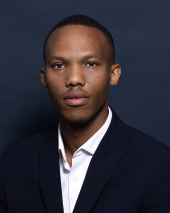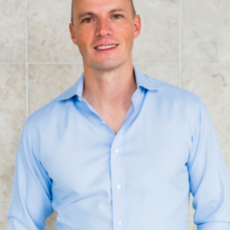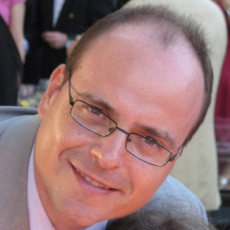
More info
The CEMS Global Alliance is a purpose-led organisation powered by our beliefs that outstanding leadership starts with self-leadership and that societal progress requires continual exploration. In this series of interviews, we look at diverse CEMS students and alumni who drive change and shape future business models!
The back story: Reducing education gaps in Lesotho
I have always been wary of economic disparities in Lesotho, where a substantial percentage of the population lives below the international poverty line of US$2.15 while the majority of wealth is held by 10% of the population. These economic conditions shaped my upbringing, instilling in me the belief that education was the key to overcoming these challenges. I was fortunate never to lack a single book throughout my education. My father ensured this by making us buy all my stationery during the December holidays –well before bookstores became crowded and stock shortages set in; however, this was not everyone’s reality.
In 2015, during winter break, I watched a group of primary school children walk past my family home without socks – despite Lesotho’s harsh winters. Until then, I had seen holiday stationery shopping with my father as tedious, but that moment opened my eyes to the depth of inequality. I realised I could no longer focus solely on myself and decided to use my network to help those in need. With the help of my friend Paballo Tlhaole, I launched a sock drive called Be Charitable, aiming to buy 1,000 pairs for that particular school. However, the initiative quickly grew – reaching multiple schools and expanding beyond socks to include school shoes distributed across the country.
The more I contributed to the Be Charitable project and saw the smiles on children’s faces, the more I longed to create deeper impact – not just physical, but mental as well. In 2022, I joined Selemela, an NGO founded by my friends Nelson Mensah-Aborampah (educated in Canada) and Bahlakoana Mabetha (educated in the U.S.). Selemela was giving scholarships to high school students and expanding its mission to bridge theory and practice through storytelling, dialogue, and collaboration. The aim was to improve access, equity, and relevance in education, aligning with Lesotho’s plans and the UN Sustainable Development Goals. Together, we launched initiatives such as developing inclusive, wheelchair-accessible school infrastructure (among others) and, most notably, writing a Life Skills Manual for adolescents and youth (ages 10–24) in Lesotho. Backed by UNICEF and the Ministry of Gender and Social Development, the manual contextualised life skills – covering cultural sensitivity, communication, and socio-economic and political realities of Lesotho – while aligning them with the formal education to ensure sustainability and scalability. We wanted to make it centric to a Lesotho context while having a global view point.
Modules covered included civic engagement & social responsibility, financial literacy, entrepreneurship and skills employability in the 21st century.
Q&A with Refiloe
What was the defining moment that made you realise your project was worth pursuing?
The defining moment came on March 30th, 2016 – a date I will never forget. That was the first time I saw that smile: a look of pure gratitude from someone whose life I had impacted. In that moment, I knew that being a catalyst for hope in someone’s life was something I would forever pursue. Since then, I’ve come to realise that the more I give to the world, the more I understand my place in it. Social impact has become not just a passion, but a principle that guides my choices.
What existing solutions did you find incomplete or flawed?
The first one is Accessibility; there is high cost of tuition and learning resources, long distances between households and schools, inaccessibility and poor infrastructure are among the main barriers to education in Lesotho. Secondly, Relevance; Factors such as high student-teacher ratio, absence of basic education resources, lack of regular monitoring and evaluation of learning, and limited teacher training continue to contribute to the low education standards in many learning institutions.
Last but not least, Equity; Lesotho’s education system does not adequately prepare learners to thrive in the complex landscape of the 21st century. The most predominant approaches to education practice do not inspire self-directed and peer learning.
There must be stronger connections among education stakeholders through resilient, community-based learning networks that enable the efficient flow of information and resources, while also fostering meaningful participation from the broader community.
How did your CEMS experience influence your journey or perspective
My CEMS experience has enabled me to combine academic pursuits with international exposure across multiple countries, thereby nurturing a profound appreciation for global interconnectedness – fostering adaptability and an innate ability to appreciate diverse perspectives.
During my time in South Africa at the University of Cape Town Graduate School of Business (UCT GSB), where my CEMS journey began, I explored topics in social innovation, sustainability and Doing Business in Africa. My perspective on business changed such that A) I learned that doing good is good for business, and B) how to adapt different business frameworks in the unique African landscape to boost trade, which can effectively propel the continent as an economic mogul. Ultimately, bringing equality and, in turn, trickling down to the education gaps that prevail.
On the other hand, and a whole different side of the globe at HEC Paris (France), I harnessed the power of the global web – I met a number of cool people from around the world people, including some CEMS alumnus who are doing amazing projects such as implementing AI driven solution to solve the Access, relevance and equity issues that seem to not only prevail in Lesotho but are a worldwide phenomenon. In this regard, I have learned that working together with my newfound CEMS network, we can achieve significant milestones in projects we care about.
My CEMS experience has been nothing short of amazing, it has allowed me to understand how to integrate my passion for social good and business. Through one of the CEMS Corporate Partners, I will be employing my skills in a Global Sustainability role. Indicative of my deliberate transition from working in the NGO space, however being in the forefront of a global firm in its mission for doing good – a mission that closely resonates with my values.
What advice would you give to fellow students who want to create impact?
Just start – impact begins with action. The more you contribute to the world, the more you’ll discover your place in it.
-----------------------
Published on 31.08.2025

